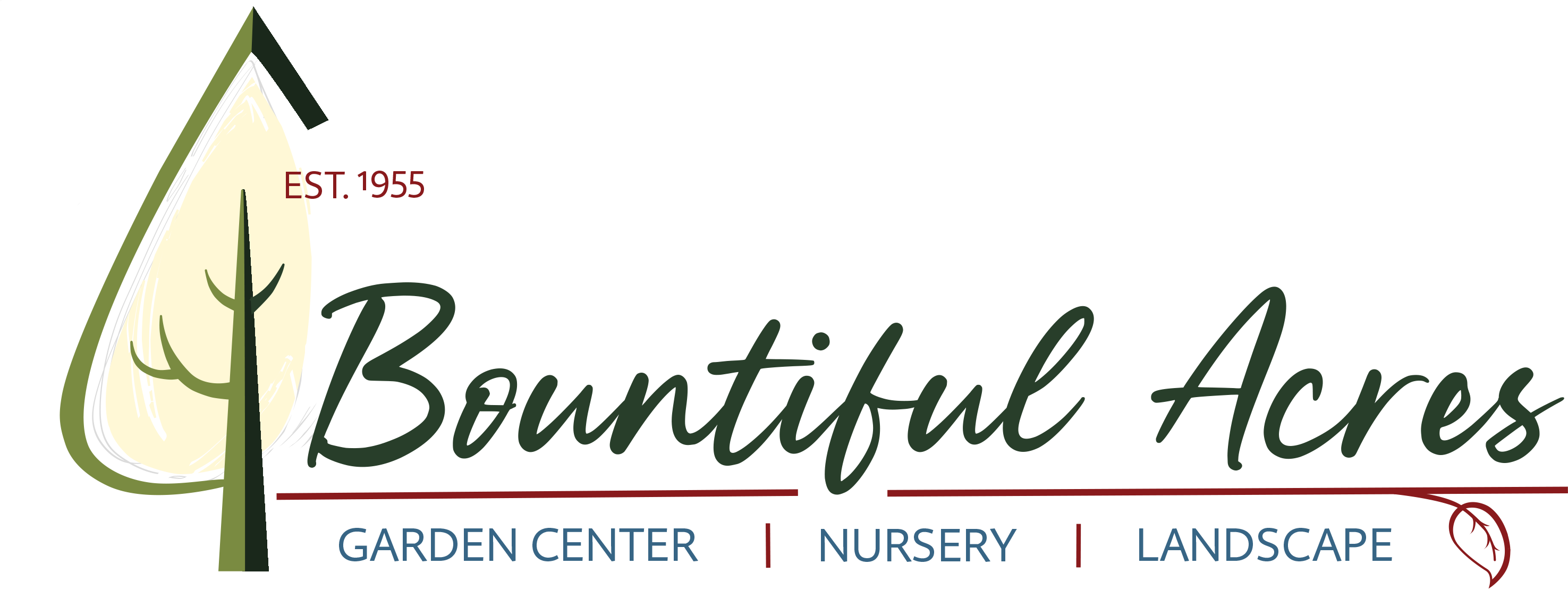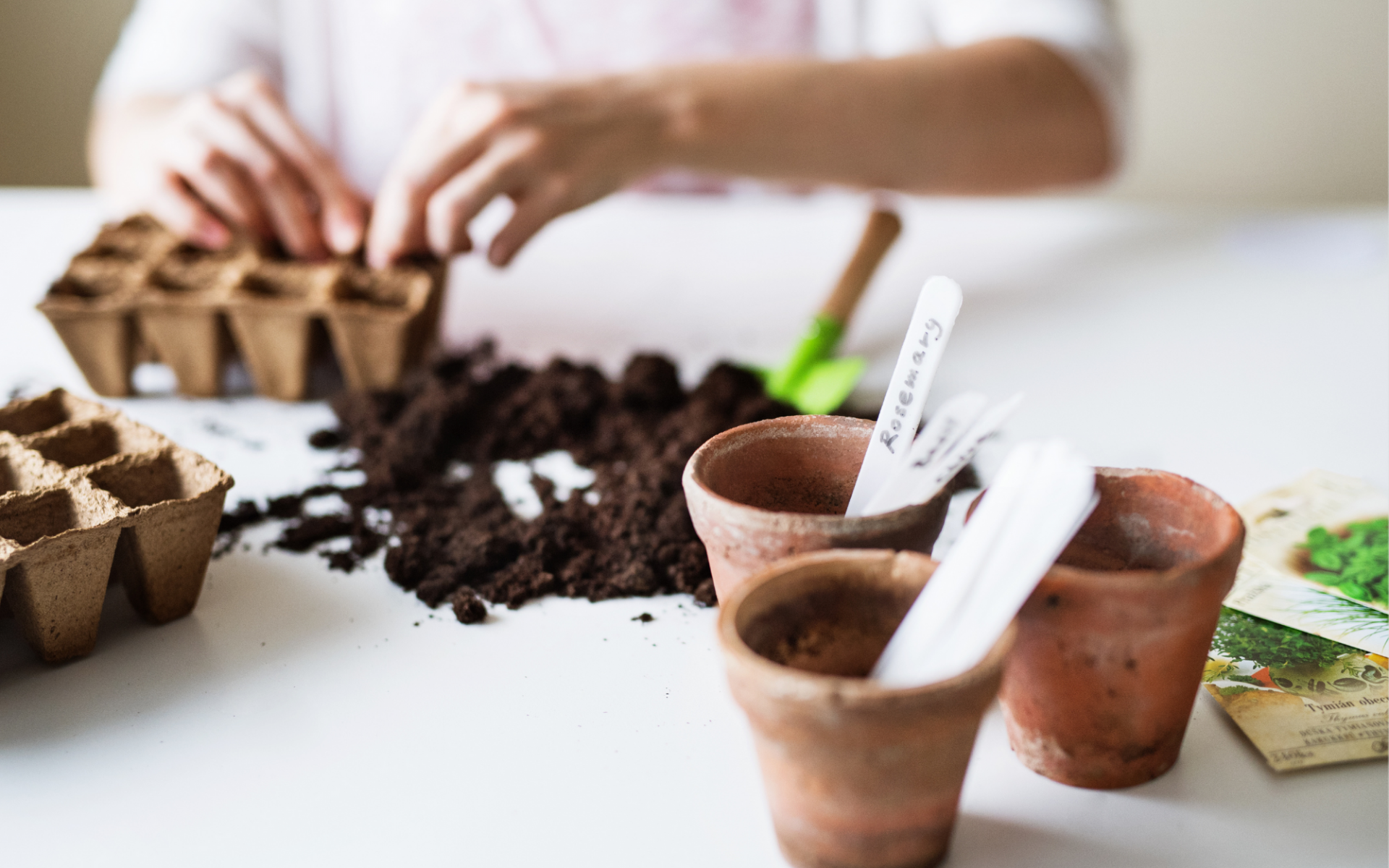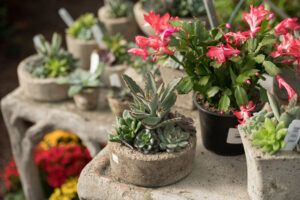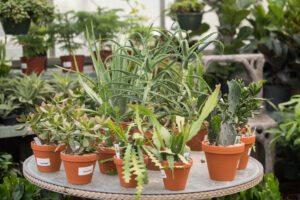There’s an ancient proverb that says, “Life begins the day you start a garden.” At Bountiful Acres, we might not be able to confirm that, but we absolutely believe that spring begins with a garden. As soon as the days grow longer and the air starts to warm, gardeners across Bucks County are ready to dig in—literally.
Starting your garden from seed is one of the most rewarding ways to kick off the season. Whether you’re a seasoned green thumb or a beginner planting your very first seed, starting indoors gives your garden the head start it needs to thrive outdoors once the weather allows.
Here are our expert seed-starting tips to help you grow strong, healthy plants right from the beginning.
Step 1: Plan Your Spring Garden
Before you break out the seed packets, take a moment to plan what you want to grow. Are you envisioning a bed full of bright flowers? A kitchen garden with herbs such as basil, parsley, and cilantro? Or maybe you’re dreaming of fresh, homegrown vegetables that include tomatoes, cucumbers, and squash?
Once you’ve decided, assess your available space, both indoors and outdoors. Consider your sunlight exposure, soil conditions, and available room in garden beds, containers, or raised beds. Mapping out where your plants will go after they’ve sprouted will help ensure a smooth transition from seed tray to soil.
Materials Checklist for Seed Starting
Having the right materials on hand will make all the difference when it comes to successful seed starting. Here’s a basic checklist to get you going:
- Seeds (choose varieties suited to the Bucks County climate)
- Seed-starting soil (lighter and more nutrient-rich than standard potting soil)
- Seeding trays, peat pots, or small containers
- Plant labels (helpful when growing multiple varieties)
- Mister bottle or watering tray
- Heating mat (to encourage germination)
- Grow light (optional, but helpful for dark indoor spaces)
All of these items are available at Bountiful Acres, where our experts here at the garden center can also help you choose the right products for your setup.
Timing is Everything
When it comes to spring gardening in Pennsylvania, timing your “seed starts” correctly is key. Here’s a rough schedule to guide your planting indoors:
Early March: Cold-Weather Crops
It’s time to start cool-season vegetables like lettuce, broccoli, cauliflower, Brussels sprouts, and Swiss chard. These hardy crops can handle cooler temperatures and are ideal for early spring planting. Many of these take 80 to 100 days to mature, making March the perfect time to begin.
Mid March to April: Warm-Weather Crops
Time to begin seeding tomatoes, peppers, cucumbers, squash, and herbs like cilantro and basil. These plants require warm soil and air temperatures, so starting them indoors ensures they’ll be strong and ready to go into the ground by late spring.
Always check the seed packet for specific germination times and transplanting instructions; each plant has its own preferences.
Creating the Ideal Indoor Growing Conditions
One of the most important parts of starting seeds indoors is mimicking the conditions they need to thrive: moisture, warmth, and light.
Moisture: Keep the soil moist, but not soggy. A misting bottle works well for light, frequent watering, while a bottom-watering tray provides consistent moisture without disturbing the soil surface. Check your soil daily to prevent issues with drying out or being waterlogged.
Warmth & Light: Seeds germinate best in warm temperatures, but also require ample light once they sprout. Windowsills can provide light, but often lack the warmth needed to encourage strong growth. A heat mat underneath the seed tray can help maintain a steady temperature. If you don’t have a sunny window, grow lights are a great investment for healthy seedlings.
Space to Grow: As your seedlings grow, some may outgrow their trays and need to be moved to larger containers. Doing this ensures that roots don’t become crowded and plants continue to grow strong.
Preparing Your Plants for the Outdoors by Hardening Off
Once your seedlings are established, you’ll need to prepare them for the transition to the outdoors. This process, known as “hardening off,” helps them adjust to cooler temperatures, wind, and sunlight without shock.
Start by placing seedlings outside for a few hours during the warmest part of the day, then gradually increase their time outdoors over a 7- to 10-day period. Always bring them back inside at night, and never leave them outside in temperatures below 42°F.
This slow transition is especially important in Bucks County, where spring temperatures can still fluctuate well into May.
Transplanting into Your Garden
Once your plants are hardened off, it’s time to transplant them into your garden, containers, or raised beds. Prepare the soil by removing debris, loosening it, and mixing in organic compost for added nutrients.
When planting, consider using a gentle fertilizer like fish emulsion. It’s mild enough for young plants and won’t burn delicate roots or leaves. As your plants grow stronger, you can introduce a regular feeding schedule with fertilizers suited to the specific plant types.
Finally, consider protective measures such as cages, netting, or fencing, especially if you’re planting tender vegetables like lettuce or beans. In Bucks County, deer, rabbits, and groundhogs are frequent garden visitors!
Celebrate the Joy of Gardening with Bountiful Acres
Whether you’re growing your first tomato or nurturing a full backyard garden, the experience of starting plants from seed is deeply rewarding. At Bountiful Acres, we’re here to support every stage of your gardening journey, from seed to harvest.
Visit our garden center in Bucks County for everything you need to get started, and talk to our knowledgeable staff about what grows best in our area. We offer high-quality seeds, soil, garden tools, and expert advice to help your spring garden thrive.
Spring is here, so let your garden grow!




